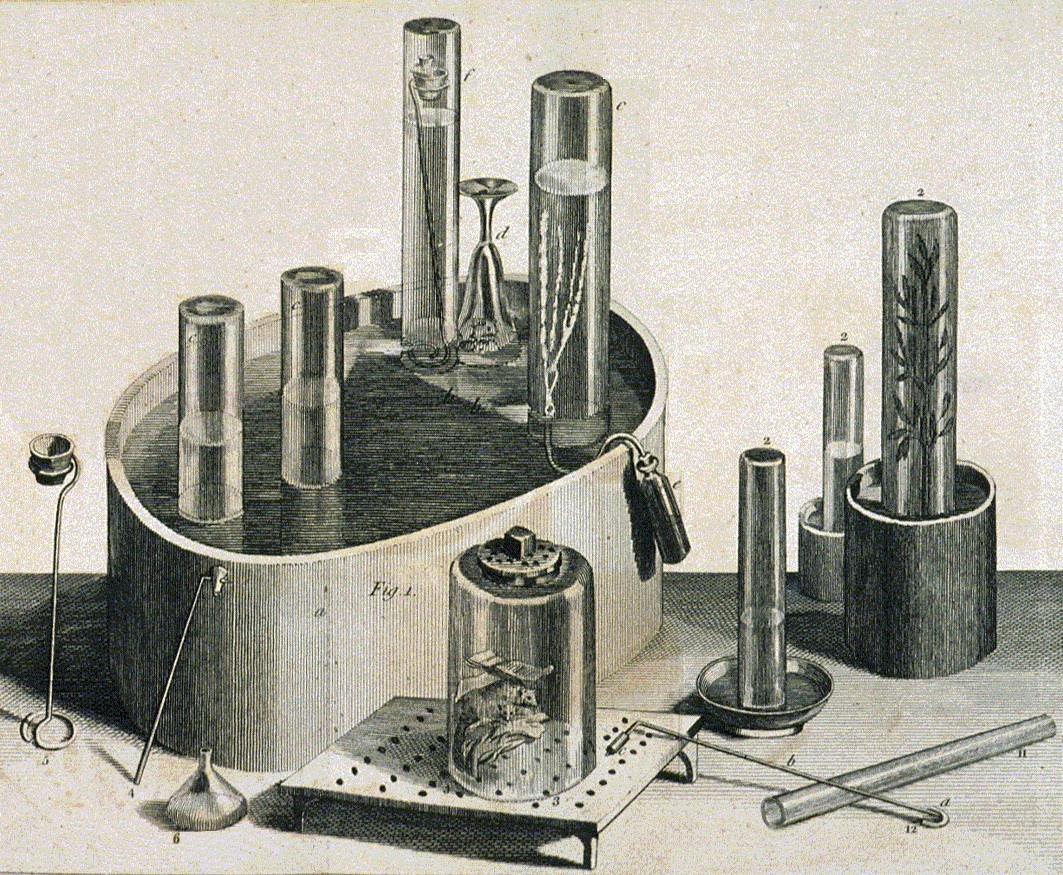Lent Term began with a suitably sparkling conversation on one of the most important works on air in the history of science, and one of its most interesting characters, Joseph Priestley. In her introduction, Charissa showed the vital role Priestley's Dissenting religious identity played in his life and career, as she traced his biography from England to America via domestic conflagration (perhaps it was too soon to escape last term's theme of fire...). She also gave a brief biography of air, from indivisible classical element to the more complicated understanding of seemingly uniform 'common air' by the eighteenth-century
Our discussion kept returning to the work as a (perhaps slightly fictionalised?) chronicle of the experimental process, guided by sensory experiences, serendipity and an often-surprised narrator. By detailing the apparatus, substances (and creatures), results, and wider ramifications of his researches, Priestley revealed in clear prose how he had been led to his conclusions. His references to other individuals from around Europe demonstrated the interconnectedness of the burgeoning chemical community, and its links to industry. We also thought more generally about chemical language in this period, and the linguistic basis of Lavoisier's reforms in the discipline as providing a new grammar of experiment.
Comparison with Joseph Wright of Derby's An Experiment on a Bird in the Air Pump (1768) showed a different way in which demonstrative experiments were conducted in this period to varied audiences (and eliciting various reactions): a bird, rather than a mouse, is here subjected to a vacuum:
Considering the fate of Priestley's murine experimental subjects led on well to a reading of 'The Mouse's Petition', on behalf of a mouse 'Found in the trap where he had been confined all night by Dr Priestley, for the sake of making experiments with different kinds of air'. These lines in particular seemed to have a contemporary, as well as an eighteenth-century, political as well as a scientific, resonance:
The well-taught philosophic mindNext time we will stick with late eighteenth- and early nineteenth-century pneumatics, but rather than mice being the subject of experimentation on new types of air we will read about what happened when people breathed them in...
To all compassion gives;Casts round the world an equal eye,
And feels for all that lives.

No comments:
Post a Comment